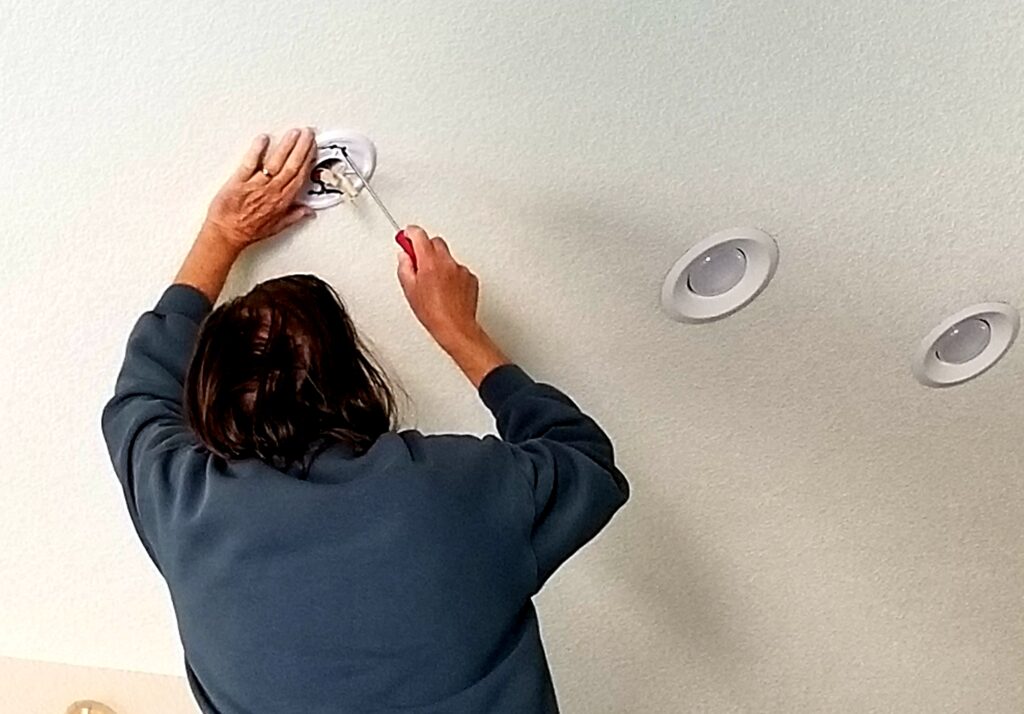
Fire Alarm or Smoke Alarm which is for you?
Welcome to DNT Electrical, your trusted partner in fire safety and electrical services. We are committed to safeguarding homes and businesses by providing reliable fire alarm or smoke alarm systems that ensure the earliest detection and prevention of fire hazards. With years of expertise in the industry, we understand the critical role fire alarms and smoke alarms play in protecting lives and property. Let us guide you through the importance of these systems and how we can help you achieve the highest level of safety.
What Is a Hard-Wired Fire Alarm?
A hard-wired fire alarm is a sophisticated and reliable safety system directly connected to your building’s electrical wiring. This type of alarm ensures a continuous power supply, making it highly dependable in both residential and commercial settings. One of the key features of hard-wired fire alarms is their interconnected nature. When one alarm detects smoke or heat, all alarms within the network activate simultaneously, providing an immediate and widespread alert to occupants. These alarms also include a battery backup, ensuring uninterrupted operation during power outages or electrical failures.
Hard-wired fire alarms often incorporate advanced features, such as heat sensors and carbon monoxide detectors, to enhance their effectiveness. Heat sensors detect rapid temperature increases, often signalling a fire before visible smoke appears. This capability is critical in environments such as kitchens or garages, where smoke may not always be the first indicator of a fire. For businesses and larger properties, hard-wired systems can also be integrated with centralised monitoring stations, ensuring that emergency services are notified immediately. This integration can be a lifesaver in large commercial properties, where swift response times are crucial to mitigate extensive damage.
Additionally, hard-wired fire alarms provide long-term reliability and durability. Unlike standalone devices that may require frequent battery replacements, these systems offer consistent performance and reduced maintenance concerns. Their robust design ensures they can withstand various environmental factors, making them ideal for a wide range of applications. Compliance with British Standards BS 5839 for fire alarm systems ensures that these installations meet design, installation, commissioning, and maintenance guidelines. This standard applies to both hard-wired and smoke alarm systems to ensure optimal functionality.
What Is a Smoke Alarm?
A smoke alarm is a standalone device specifically designed to detect the presence of smoke, which is often an early warning sign of fire. These devices are typically battery-powered or connected to a building’s electrical system. Smoke alarms employ two primary types of sensors: ionisation and photoelectric. Ionisation sensors are particularly effective at detecting fast-flaming fires, while photoelectric sensors excel at identifying smouldering fires that produce more smoke. Some modern smoke alarms use a combination of these technologies to provide comprehensive detection.
Smoke alarms are incredibly versatile and can be installed in virtually any location. They are designed to be user-friendly, with easy-to-understand alerts and minimal installation requirements. Many newer models also include smart technology, allowing users to monitor and manage their alarms remotely through smartphone apps. This feature is especially valuable for homeowners who travel frequently or manage multiple properties. Additionally, Smoke and Carbon Monoxide Alarm (Amendment) Regulations 2022 require landlords to install at least one smoke alarm on every storey of a rental property where there is a room used as living accommodation. A carbon monoxide alarm must also be installed in any room where solid fuel is used. These regulations emphasise the importance of having working smoke alarms to protect the residents of rental properties.
Unlike hard-wired fire alarms, standalone smoke alarms are usually not interconnected. While they are easier to install and more cost-effective, their independent nature means that if one alarm triggers, others in the property will not activate unless they detect smoke as well. Smoke alarms are ideal for smaller residential settings or as supplementary safety devices in larger systems. Their portability and ease of installation make them a convenient choice for many homeowners. However, relying solely on standalone smoke alarms in larger or multi-story buildings may leave critical gaps in fire detection coverage.
The Difference Between Hard-Wired Fire Alarms and Smoke Alarms
While both hard-wired fire alarms and smoke alarms are designed to alert occupants to potential fire hazards, their key differences lie in functionality, scalability, and application. Hard-wired fire alarms offer interconnected operation, ensuring a cohesive response across the entire property. This feature makes them particularly suitable for larger homes, commercial spaces, and buildings with multiple levels. They also tend to include additional sensors for heat and carbon monoxide, providing a more comprehensive safety solution.
In contrast, standalone smoke alarms are simpler, more portable, and easier to install. They are a cost-effective option for smaller spaces or as an additional layer of protection in areas that may not require the extensive coverage of a hard-wired system. However, their lack of interconnectivity means they may not provide the same level of early warning as a hard-wired system, particularly in larger or more complex properties.
For instance, in a multi-level home or a sprawling business complex, a hard-wired system’s interconnected alarms ensure that everyone is alerted simultaneously, regardless of their location. This level of synchronisation can be critical in providing enough time for a safe evacuation. On the other hand, a standalone smoke alarm’s effectiveness may be limited to the immediate vicinity of the fire, which could delay the response in other parts of the building.
The Benefits of Having a Fire Alarm or Smoke Alarm Installed
Installing both hard-wired fire alarms and smoke alarms creates a multi-layered safety net that maximises protection. Hard-wired systems offer comprehensive coverage, ensuring that all areas of a property are monitored and interconnected. This interconnectedness is particularly valuable in larger buildings, where occupants in distant rooms may not hear a single alarm activate. Smoke alarms, on the other hand, can provide supplementary protection in specific high-risk areas, such as kitchens, where false alarms may be more common.
The combination of these systems ensures that any fire, regardless of its origin or characteristics, is detected and addressed promptly. This dual approach enhances the reliability of fire safety measures and minimises the chances of undetected fires. For example, a hard-wired alarm might be installed in main living areas and hallways, while standalone smoke alarms are placed in isolated rooms, ensuring no part of the property is left unprotected.
Furthermore, modern systems often include smart features, such as wireless connectivity and mobile alerts, allowing homeowners and business operators to monitor their property’s safety remotely. These advanced features enable users to receive real-time notifications of potential fire hazards, even when they are away from the property. This level of awareness provides added peace of mind and allows for quicker responses in emergencies.
The Risks of Not Having a Fire Alarm or Smoke Alarm in Place
Neglecting to install adequate fire and smoke alarm systems poses significant risks to both life and property. Without these systems, a fire may go unnoticed until it is too late to respond effectively. The absence of early warning can lead to delayed evacuations, increasing the likelihood of injuries or fatalities. Property damage also tends to be more severe when fires are detected late, leading to higher repair costs and longer recovery times.
For businesses, the lack of proper fire alarm systems can result in legal liabilities, fines, and potential closure due to non-compliance with safety regulations. The reputational damage from such incidents can be difficult to overcome, affecting customer trust and long-term profitability. Additionally, insurance claims may be denied or reduced if it is determined that adequate fire safety measures were not in place.
Consider the devastating impact on a restaurant that fails to detect a kitchen fire in its early stages. Beyond the financial losses from property damage, the business may face lawsuits, health department penalties, and loss of customer confidence. Similarly, a residential property without adequate fire detection may expose families to life-threatening situations, underscoring the vital need for these systems.
The Purpose of Fire Alarms for Businesses
Fire alarm systems are a cornerstone of safety for any business. Their primary purpose is to protect employees, customers, and assets by providing early detection and warning. Beyond their immediate safety benefits, fire alarms also fulfil regulatory requirements, ensuring compliance with local building codes and fire safety standards. In the UK, Regulatory Reform (Fire Safety) Order 2005 (RRO) mandates that business premises and multi-occupied residential buildings must have an appropriate fire detection and alarm system. The system must be capable of detecting fire and warning occupants effectively. Compliance with this law ensures safety for all occupants, particularly in high-risk areas or large premises where early detection is essential.
Investing in reliable fire alarm systems also makes good business sense. Fires can cause extensive downtime, disrupting operations and leading to financial losses. By minimising the impact of fire incidents, businesses can protect their revenue streams and maintain operational continuity. Furthermore, demonstrating a commitment to safety can enhance a company’s reputation, fostering trust among clients, partners, and employees. In industries like hospitality or healthcare, where safety is paramount, the presence of robust fire alarm systems can be a significant competitive advantage.
Protect Your Home and Business with DNT Electrical
At DNT Electrical, we take pride in helping our clients achieve peace of mind through top-notch fire safety solutions. Whether you’re looking to protect your family at home or ensure the safety of your employees and customers at your business, we’re here to help. Our team of certified electricians specialises in the installation and maintenance of fire protection systems for both domestic and commercial premises.
We offer tailored solutions to meet your specific needs. All our fire alarm systems are mains powered with a reliable backup function to maintain operation during power outages. Our interconnected systems provide comprehensive coverage, ensuring that any potential fire hazard is detected and addressed as early as possible. In addition, we stay updated on the latest fire safety technologies, offering innovative solutions that enhance protection and convenience.
Don’t wait for a fire incident to underscore the importance of proper fire protection. If you want to know how to safeguard your family, passengers, or business, call or email us today. We’ll provide expert advice on fire safety and install systems that prioritise your protection. With DNT Electrical, you’re not just investing in equipment—you’re investing in safety, reliability, and peace of mind. Contact us now to learn more about how we can help secure your property against fire hazards.

